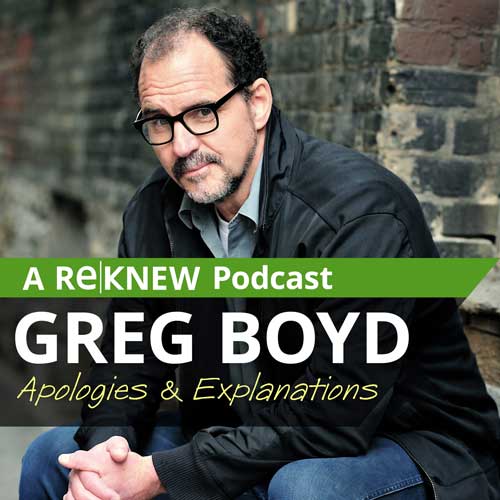We run our website the way we wished the whole internet worked: we provide high quality original content with no ads. We are funded solely by your direct support. Please consider supporting this project.
What If Open Theism is Not True? What Would Be the Practical Implications?
In this episode Greg talks about what the practical implication would be if Open Theism is not true. Our favorite quote from this episode: “There is no way to live as if we are predestined.”

Send Questions To:
Dan: @thatdankent
Email: askgregboyd@gmail.com
Twitter: @reKnewOrg
Greg’s new book: Inspired Imperfection
Dan’s new book: Confident Humility
Subscribe:
Category: ReKnew Podcast
Tags: Open Theism
Related Reading

Podcast: Is God Outside of Time?
Greg discusses the nature of time, the importance of sequence, and the centrality of poetry. http://traffic.libsyn.com/askgregboyd/Episode_0286.mp3

How Could God Foreknow Peter’s Choice but not Abraham’s? (podcast)
Greg looks at the nature of God’s foreknowledge and testing. Episode 562 http://traffic.libsyn.com/askgregboyd/Episode_0562mp3.mp3

How do you respond to Jeremiah 1:5
The Lord says to Jeremiah, “Before I formed you in the womb I knew you, and before you were born I consecrated you; I appointed you a prophet to the nations.” This verse shows God’s love and plan for Jeremiah before he was born. This does not imply that Jeremiah could not have “rejected God’s…

What is the significance of Jeremiah 3:6–7?
Regarding Israel, the Lord says “I thought, ‘After she has done all this she will return to me’; but she did not return.” If the future is exhaustively settled in God’s mind, the meaning of this verse is unclear. How could God really think that something was going to happen if he foreknew with absolute…

Why the 35W Bridge Collapsed – blog post 8/09/2007
As all of you know, I’m sure, a little over a week ago the 35W bridge in Minneapolis collapsed. This is the most traveled bridge in Minnesota. It was a tragedy, though the fact that only 13 people died and/or are presumed dead is really amazing, especially given that this happened at the peak of…




